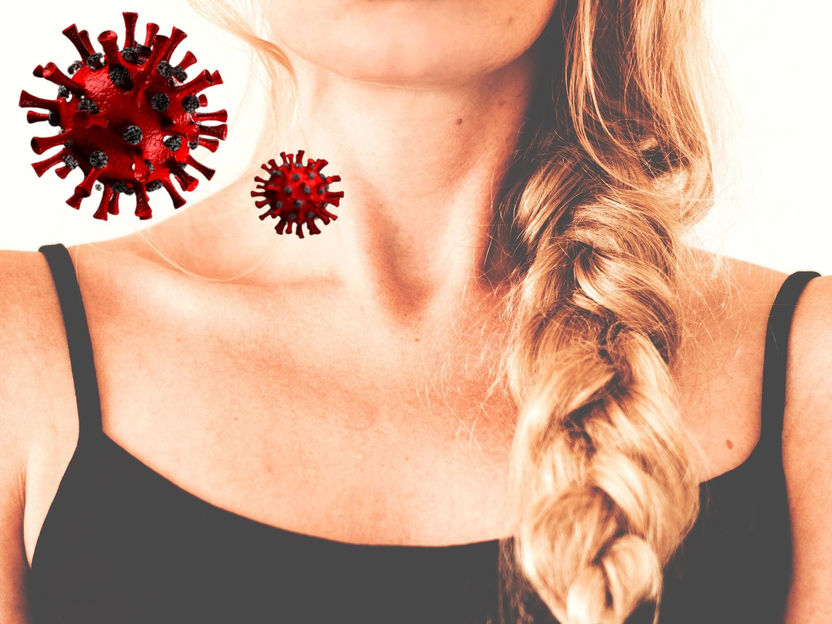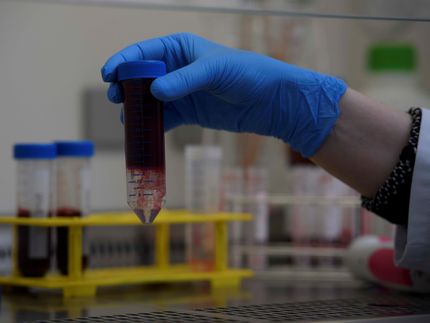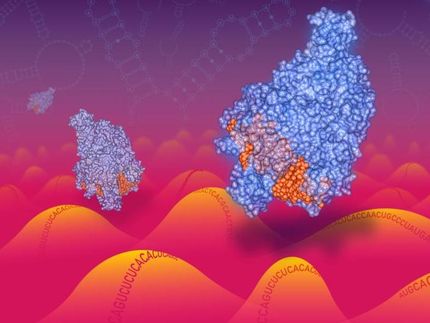Simple, non-invasive skin swab samples are enough to quickly detect COVID-19
Researchers at the University of Surrey have found that non-invasive skin swab samples may be enough to detect Covid-19.

The samples were collected by gently swabbing a skin area rich in sebum - an oily, waxy substance produced by the body's sebaceous glands - such as the face, neck or back (symbolic image).
pixabay.com
The most widely used approach to testing for COVID-19 requires a polymerase chain reaction (PCR) test, which involves taking a swab of the back of the throat and far inside the nose.
In a paper published by Lancet E Clinical Medicine, chemists from Surrey teamed up with Frimley NHS Trust and the Universities of Manchester and Leicester to collect sebum samples from 67 hospitalised patients - 30 who had tested positive for COVID-19 and 37 who had tested negative. The samples were collected by gently swabbing a skin area rich in sebum - an oily, waxy substance produced by the body's sebaceous glands - such as the face, neck or back.
The researchers analysed the samples by using liquid chromatography mass spectrometry and a statistical modelling technique called Partial Least Squares - Discriminant Analysis to differentiate between the COVID-19 positive and negative samples.
The Surrey team then found that patients with a positive COVID-19 test had lower lipid levels - or dyslipidemia - than their counterparts with a negative test. The accuracy of the study's results increased further when medication and additional health conditions were controlled.
Dr Melanie Bailey, co-author of the study from the University of Surrey, said: "Unfortunately, the spectre of future pandemics is firmly on the top of the agenda for the scientific community. Our study suggests that we may be able to use non-invasive means to test for diseases such as COVID-19 in the future - a development which I am sure will be welcomed by all."
Matt Spick, co-author of the study from the University of Surrey, said: "COVID-19 damages many areas of metabolism. In this work, we show that the skin lipidome can be added to the list, which could have implications for the skin's barrier function, as well as being a detectable symptom of the disease itself."
Dr George Evetts, Consultant in Anaesthesia & Intensive Care Medicine at Frimley Park Hospital, said: "Investigating new methods of diagnosis and surveillance in a new disease such as COVID-19 that has had such a devastating effect on the world is vital. Sebum sampling is a simple, non-invasive method that shows promise for both diagnostics and monitoring of the disease in both a healthcare and a non-healthcare setting."
Original publication
See the theme worlds for related content
Topic World Mass Spectrometry
Mass spectrometry enables us to detect and identify molecules and reveal their structure. Whether in chemistry, biochemistry or forensics - mass spectrometry opens up unexpected insights into the composition of our world. Immerse yourself in the fascinating world of mass spectrometry!

Topic World Mass Spectrometry
Mass spectrometry enables us to detect and identify molecules and reveal their structure. Whether in chemistry, biochemistry or forensics - mass spectrometry opens up unexpected insights into the composition of our world. Immerse yourself in the fascinating world of mass spectrometry!



























































